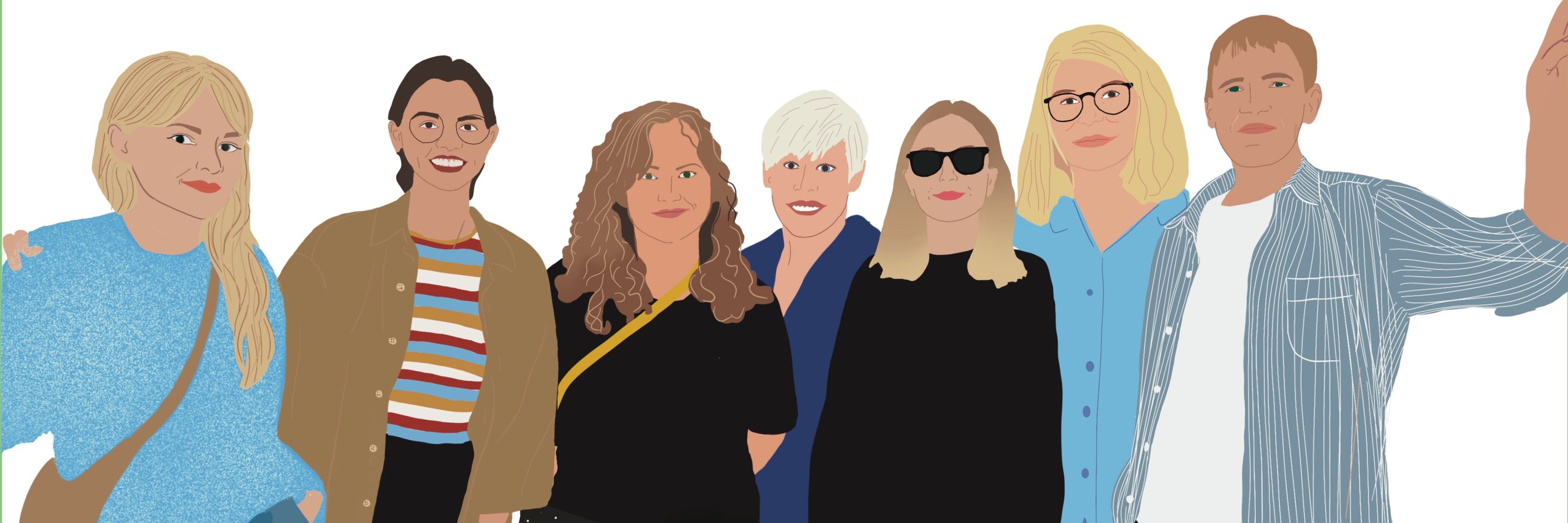
Alexander Pietras Lab
@pietraslab.bsky.social
We're the Alexander Pietras Lab, exploring the complexities of the brain tumor microenvironment. We study how therapies like radiotherapy reshape it and seek innovative ways to outsmart tumors.
AP posts @ Lund University
trained @ MSKCC and @ Fred Hutch
AP posts @ Lund University
trained @ MSKCC and @ Fred Hutch
Thanks to all speakers, including bsky users @winklerlab.bsky.social @claudiakleinman.bsky.social @nelander-lab.bsky.social @gocastelobranco.bsky.social, the Ragnar Söderberg foundation, and co-hosts @remeseiro-lab.bsky.social, @maawim.bsky.social, and Fredrik Swartling.
September 19, 2025 at 5:50 AM
Thanks to all speakers, including bsky users @winklerlab.bsky.social @claudiakleinman.bsky.social @nelander-lab.bsky.social @gocastelobranco.bsky.social, the Ragnar Söderberg foundation, and co-hosts @remeseiro-lab.bsky.social, @maawim.bsky.social, and Fredrik Swartling.
…the Swedish Cancer Society, the Swedish Research Council, the Swedish Childhood Cancer Fund, Ollie & Elof Ericssons foundation, the Crafoord foundation, the Swedish Brain Foundation, the Royal Physiographic Society in Lund, Stiftelsen Cancera, @embo.org, and the Fondation Bettencourt-Schueller.
July 18, 2025 at 7:01 AM
…the Swedish Cancer Society, the Swedish Research Council, the Swedish Childhood Cancer Fund, Ollie & Elof Ericssons foundation, the Crafoord foundation, the Swedish Brain Foundation, the Royal Physiographic Society in Lund, Stiftelsen Cancera, @embo.org, and the Fondation Bettencourt-Schueller.
This work was spearheaded by Pauline Jeannot with crucial contributions from collaborators @edinburgh-uni.bsky.social @lundstem.bsky.social @ahleniuslab.bsky.social , and supported by @erc.europa.eu, Mrs. Berta Kamprad's Cancer Foundation, the Ragnar Söderberg Foundation…
July 18, 2025 at 7:01 AM
This work was spearheaded by Pauline Jeannot with crucial contributions from collaborators @edinburgh-uni.bsky.social @lundstem.bsky.social @ahleniuslab.bsky.social , and supported by @erc.europa.eu, Mrs. Berta Kamprad's Cancer Foundation, the Ragnar Söderberg Foundation…
Our findings position Flunarizine as a clinically viable repurposed drug to target RT-induced astrocyte reactivity, delaying recurrence in preclinical models.
July 18, 2025 at 7:01 AM
Our findings position Flunarizine as a clinically viable repurposed drug to target RT-induced astrocyte reactivity, delaying recurrence in preclinical models.
Importantly, Flunarizine showed no direct cytotoxicity to tumor cells, emphasizing its unique action on the microenvironment rather than the cancer cells themselves.
July 18, 2025 at 7:01 AM
Importantly, Flunarizine showed no direct cytotoxicity to tumor cells, emphasizing its unique action on the microenvironment rather than the cancer cells themselves.
In preclinical mouse models, combining Flunarizine with RT significantly prolonged survival, reduced fibrosis, and mitigated astrocyte reactivity, specifically targeting the irradiated microenvironment.
July 18, 2025 at 7:01 AM
In preclinical mouse models, combining Flunarizine with RT significantly prolonged survival, reduced fibrosis, and mitigated astrocyte reactivity, specifically targeting the irradiated microenvironment.
Mechanistically, Flunarizine reduced astrocytic activation of TGF-β signaling—a key driver of fibrosis—without directly harming GBM cells.
July 18, 2025 at 7:01 AM
Mechanistically, Flunarizine reduced astrocytic activation of TGF-β signaling—a key driver of fibrosis—without directly harming GBM cells.
Flunarizine, an existing migraine medication, emerged as a potent inhibitor of RT-induced astrocyte reactivity, working effectively in vitro and in vivo.
July 18, 2025 at 7:01 AM
Flunarizine, an existing migraine medication, emerged as a potent inhibitor of RT-induced astrocyte reactivity, working effectively in vitro and in vivo.
We developed a novel, automated, image-based assay to quantify astrocyte reactivity in human astrocytes and iPSC-derived astrocytes, and screened >1,700 small molecule compounds.
July 18, 2025 at 7:01 AM
We developed a novel, automated, image-based assay to quantify astrocyte reactivity in human astrocytes and iPSC-derived astrocytes, and screened >1,700 small molecule compounds.
Our goal: Identify compounds that selectively block astrocyte reactivity triggered by radiotherapy, potentially delaying GBM recurrence.
July 18, 2025 at 7:01 AM
Our goal: Identify compounds that selectively block astrocyte reactivity triggered by radiotherapy, potentially delaying GBM recurrence.
Reactive astrocytes can initially protect brain tissue but, when chronically activated (as seen after radiation), they alter the microenvironment by promoting fibrosis and inflammation.
July 18, 2025 at 7:01 AM
Reactive astrocytes can initially protect brain tissue but, when chronically activated (as seen after radiation), they alter the microenvironment by promoting fibrosis and inflammation.
GBM remains one of the deadliest cancers due to inevitable recurrence after standard treatments, including radiotherapy (RT). We believe that microenvironmental adaptations to RT, including astrocyte reactivity, fosters a tumor-supportive environment.
July 18, 2025 at 7:01 AM
GBM remains one of the deadliest cancers due to inevitable recurrence after standard treatments, including radiotherapy (RT). We believe that microenvironmental adaptations to RT, including astrocyte reactivity, fosters a tumor-supportive environment.
Reposted by Alexander Pietras Lab
🌍 Join us in a supportive, international lab within a vibrant cancer research hub! Strong local bioinformatics community + a high quality of life in the Malmö/Lund region. Great science, great people, great place to live. 💻🧬🏡
May 15, 2025 at 8:27 AM
🌍 Join us in a supportive, international lab within a vibrant cancer research hub! Strong local bioinformatics community + a high quality of life in the Malmö/Lund region. Great science, great people, great place to live. 💻🧬🏡
🌍 Join us in a supportive, international lab within a vibrant cancer research hub! Strong local bioinformatics community + a high quality of life in the Malmö/Lund region. Great science, great people, great place to live. 💻🧬🏡
May 15, 2025 at 8:27 AM
🌍 Join us in a supportive, international lab within a vibrant cancer research hub! Strong local bioinformatics community + a high quality of life in the Malmö/Lund region. Great science, great people, great place to live. 💻🧬🏡

